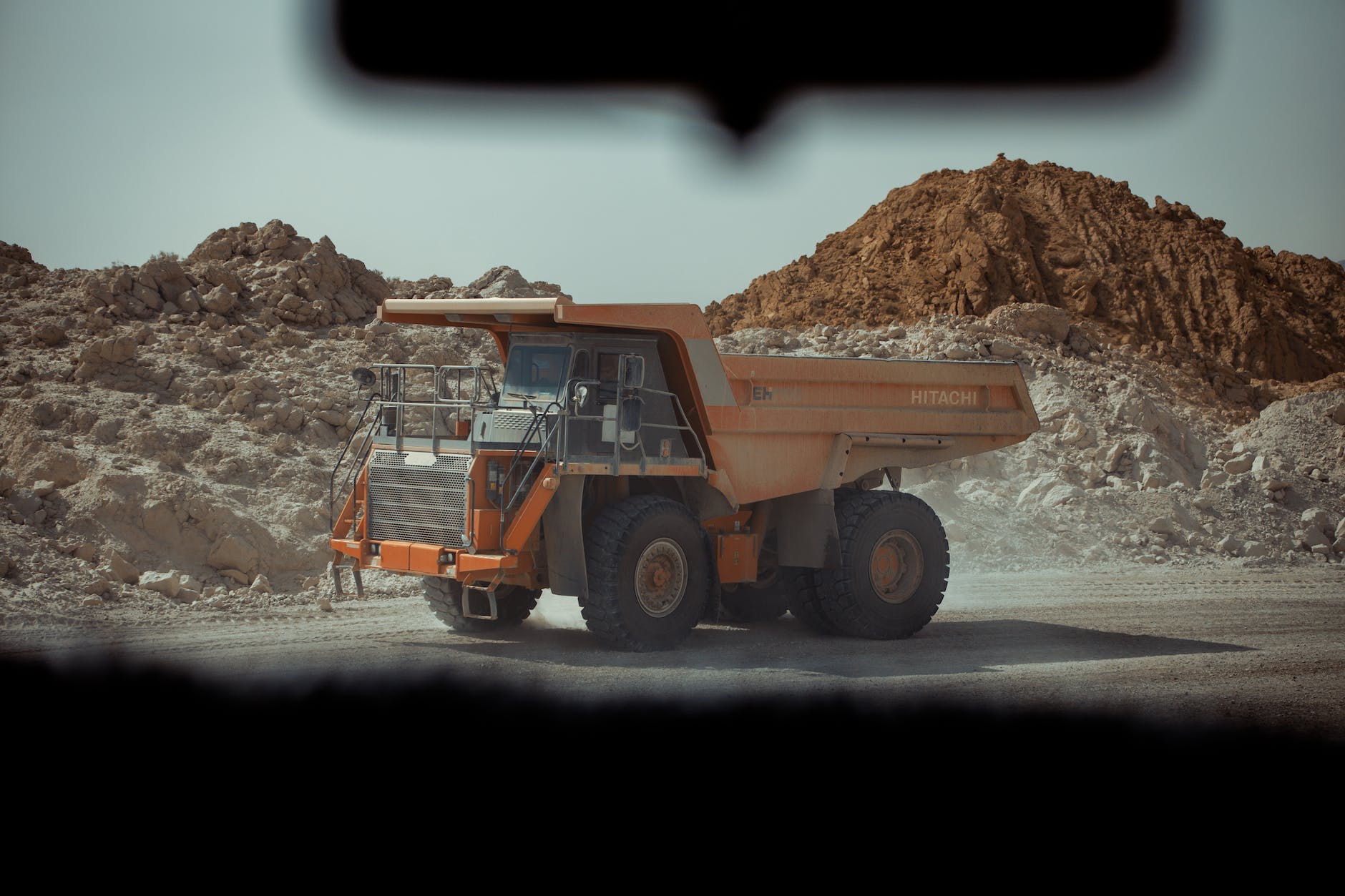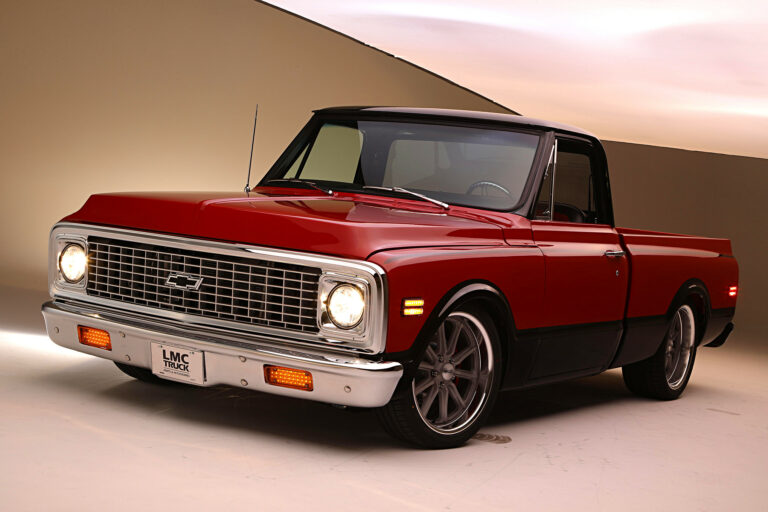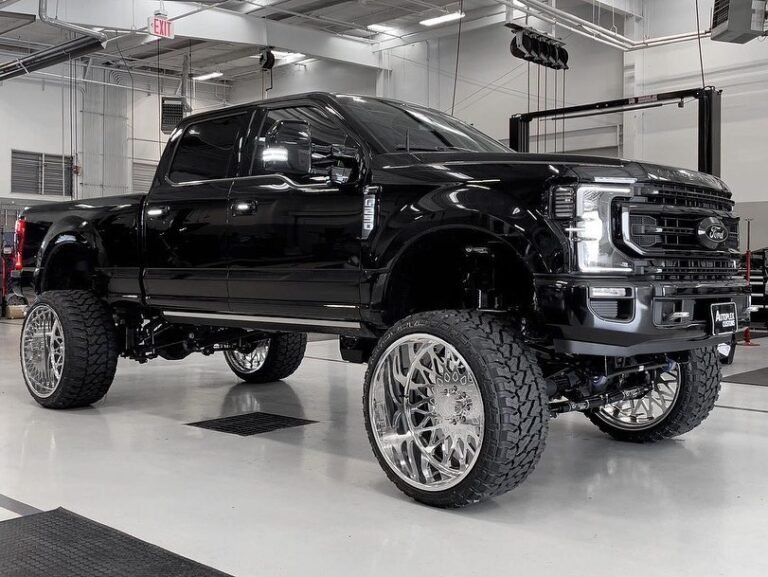Dump Trucks For Sale: Your Ultimate Guide to Making the Right Investment
Dump Trucks For Sale: Your Ultimate Guide to Making the Right Investment cars.truckstrend.com
Introduction: The Workhorse of Industry
In the vast landscape of heavy machinery, few vehicles are as ubiquitous and indispensable as the dump truck. From towering construction sites and sprawling mining operations to meticulous landscaping projects and efficient waste management, dump trucks are the tireless workhorses responsible for transporting massive quantities of aggregate, soil, debris, and raw materials. They are the backbone of infrastructure development, the silent enablers of economic growth, and a critical asset for businesses that rely on the efficient movement of bulk goods.
Dump Trucks For Sale: Your Ultimate Guide to Making the Right Investment
For individuals and businesses looking to expand their fleet, replace aging equipment, or embark on new ventures, the prospect of acquiring a dump truck is a significant decision. It’s an investment that promises enhanced productivity, operational efficiency, and a tangible return on capital. However, navigating the "Dump Trucks For Sale" market can be complex, filled with myriad options, technical specifications, and crucial considerations. This comprehensive guide aims to demystify the process, offering a detailed roadmap to help you identify, evaluate, and ultimately secure the perfect dump truck that aligns with your specific needs and budget.
Why Buy a Dump Truck? Understanding Your Needs
Before delving into the specifics of models and features, the first crucial step is to define why you need a dump truck and what specific tasks it will perform. Understanding your operational requirements will narrow down your search considerably and prevent costly missteps.
- Diverse Applications: Dump trucks serve a wide array of industries:
- Construction: Hauling sand, gravel, asphalt, concrete, demolition debris.
- Mining & Quarrying: Transporting ore, overburden, crushed rock.
- Landscaping & Agriculture: Moving soil, mulch, compost, aggregates, feed.
- Waste Management: Collecting and transporting refuse, recycling materials.
- Road Maintenance: Hauling salt, sand, and asphalt for repairs.

- Payload and Material Type: What kind of materials will you be hauling, and how heavy are they? This directly impacts the required payload capacity and body material.
- Terrain and Accessibility: Will the truck operate primarily on paved roads, rough construction sites, or challenging off-road terrain? This dictates the axle configuration, tire type, and overall ruggedness needed.
- Frequency of Use: Will it be a daily workhorse or an occasional utility vehicle? This influences whether a new or used truck, and the level of maintenance and reliability, is more suitable.
- Distance of Haul: Short hauls within a site might favor maneuverability, while long-distance over-the-road transport requires fuel efficiency and driver comfort.

By thoroughly assessing these factors, you can create a clear profile of your ideal dump truck, setting the foundation for an informed purchasing decision.

Types of Dump Trucks: Finding the Right Fit
The world of dump trucks is more diverse than many imagine, with specialized designs tailored for specific tasks. Knowing the common types will help you identify the most efficient solution for your operations.
- Standard Dump Truck (Rigid Frame): The most common type, featuring a truck chassis with a mounted dump body that lifts to unload. Ideal for construction, landscaping, and road work on paved and moderately rough surfaces. Available in various axle configurations (e.g., tandem, tridem).
- Articulated Dump Truck (ADT): Characterized by a hinge between the cab and the dump body, allowing for excellent maneuverability and traction on extremely challenging, uneven, and soft terrains. Perfect for mining, quarrying, and large-scale construction where off-road capability is paramount.
- Transfer Dump Truck: A standard dump truck that pulls a separate trailer, also equipped with a movable cargo container. This allows for increased payload capacity (typically 2-3 times more) in a single trip, making them efficient for high-volume hauling on highways.
- Super Dump Truck: A standard dump truck with an additional trailing axle (or several) that can be lifted or lowered. This allows the truck to legally carry significantly more payload on public roads by distributing the weight over more axles, optimizing efficiency and reducing trips.
- Semi-Trailer End Dump Truck: Consists of a tractor pulling a trailer with a dump body. The trailer’s body lifts to dump material from the rear. Excellent for large volume hauling on highways and relatively flat surfaces.
- Side Dump Truck: Similar to a semi-trailer end dump but unloads material to the side. This is beneficial for spreading material linearly, such as along roadsides, or in areas where overhead obstructions prevent rear dumping.
- Bottom Dump Truck (Belly Dump): A semi-trailer unit that opens clamshell-style gates at the bottom of the trailer to discharge material. Ideal for spreading loose materials like sand, gravel, and asphalt in thin, uniform layers, especially on highway projects.
- Off-Highway/Mining Dump Truck: Massive, rigid-frame trucks designed for extreme loads and harsh conditions in mines and quarries. They are not street-legal and are built purely for heavy-duty, off-road material transport.
Each type offers distinct advantages. Selecting the right one is crucial for maximizing efficiency and safety.
Key Considerations When Purchasing a Dump Truck
A dump truck is a substantial investment, and a thorough evaluation of its components and specifications is critical.
- Capacity & Payload: This is paramount. Understand the Gross Vehicle Weight Rating (GVWR) – the maximum operating weight of the truck – and the Gross Combination Weight Rating (GCWR) if pulling a trailer. Ensure the truck’s legal payload capacity meets your operational needs.
- Engine & Powertrain:
- Horsepower (HP) & Torque: Adequate power is essential for hauling heavy loads, especially on inclines. Torque is crucial for pulling power.
- Transmission: Manual transmissions offer more control and fuel efficiency for experienced drivers, while automatic transmissions provide ease of operation and are preferred in stop-and-go conditions.
- Fuel Efficiency: A significant factor in long-term operating costs. Research specific engine models and their fuel consumption.
- Axle Configuration & Suspension: Tandem (two rear axles) and tridem (three rear axles) configurations distribute weight, allowing for higher payloads. Air ride suspension offers a smoother ride and better cargo protection, while spring suspension is more rugged and often preferred for heavy off-road use.
- Body Material & Construction:
- Steel: Durable, strong, and generally cheaper. Best for heavy, abrasive materials like rock and demolition debris.
- Aluminum: Lighter, leading to higher legal payload capacity and better fuel economy. Ideal for lighter aggregates, sand, and asphalt.
- Look for reinforced sections, robust welds, and a well-maintained paint finish to prevent rust.
- Hydraulics: The heart of the dumping mechanism. Inspect cylinders for leaks, hoses for cracks, and the pump for proper function. Check the lift capacity and cycle time.
- Tires: A major ongoing expense. Assess tire condition (tread depth, sidewall integrity) and ensure they are appropriate for your intended terrain and load.
- Cab & Operator Comfort/Safety: A comfortable and safe operator is a productive one. Look for ergonomic seating, good visibility, air conditioning, modern controls, and safety features like rearview cameras, blind-spot monitoring, and anti-lock brakes (ABS).
- Maintenance History (for used trucks): This is non-negotiable. Request detailed service records, including engine overhauls, transmission work, hydraulic system maintenance, and any major repairs. A well-documented history indicates responsible ownership and can save you significant repair costs down the line.
- Emissions Standards: Be aware of local and national emissions regulations (e.g., EPA standards, DEF systems). Non-compliant vehicles can incur fines or be restricted from certain operations.
- Budget: Beyond the purchase price, factor in operating costs (fuel, tires, maintenance), insurance, registration, and potential financing costs.
Where to Find Dump Trucks For Sale
The market for dump trucks is diverse, offering multiple avenues for purchase.
- Dealerships (New and Used): Authorized dealers offer new trucks with warranties and access to manufacturer financing. Many also have extensive inventories of certified used trucks, often with reconditioning services and limited warranties. This is often the safest route for buyers seeking reliability and support.
- Online Marketplaces: Websites like TruckPaper.com, CommercialTruckTrader.com, Mascus.com, and eBay Motors specialize in heavy equipment. They offer vast selections, allowing you to compare models, prices, and locations from various sellers. Be cautious and verify seller credibility.
- Auctions (Online and In-Person): Ritchie Bros. Auctioneers, IronPlanet, and GovDeals are popular platforms. Auctions can offer competitive prices, especially for fleet liquidations or government surplus. However, vehicles are typically sold "as-is, where-is," requiring thorough pre-bid inspections.
- Private Sellers: Often found through local classifieds or word-of-mouth. Prices might be lower as there’s no dealer markup, but due diligence (inspection, history check) is entirely your responsibility.
- Brokerages: Companies that specialize in sourcing heavy equipment for clients. They can leverage their network to find specific models and negotiate on your behalf, ideal for busy buyers or those seeking niche equipment.
The Buying Process: A Step-by-Step Guide
Once you’ve identified your needs and preferred type, follow these steps to secure your dump truck.
- Define Your Budget (Beyond Purchase Price): Factor in sales tax, registration, insurance, initial maintenance, and any necessary upgrades. Consider financing options and get pre-approved if possible.
- Research & Shortlist: Based on your needs and budget, research specific makes and models. Read reviews, compare specifications, and create a shortlist of potential candidates.
- Thorough Inspection (Crucial for Used Trucks):
- Mechanical: Engine (leaks, smoke, unusual noises), transmission (smooth shifting), brakes (responsive, no pulling), hydraulics (leaks, smooth operation), suspension.
- Structural: Check the frame for cracks, bends, or significant rust. Inspect the dump body for dents, cracks, wear plates, and proper gate operation.
- Electrical: Lights, gauges, HVAC, wipers, horn.
- Tires: Tread depth, uneven wear, sidewall condition.
- Fluids: Check oil, coolant, hydraulic fluid levels and condition.
- Consider a Professional Third-Party Inspection: Especially for high-value used trucks or if you lack mechanical expertise. This unbiased assessment can reveal hidden issues.
- Test Drive: Take the truck for a comprehensive test drive under conditions similar to your intended use. Listen for unusual noises, feel for vibrations, check steering, and evaluate braking performance. Test the dumping mechanism thoroughly.
- Review Documentation: Verify the Vehicle Identification Number (VIN) on the truck matches the title. Request service records, maintenance logs, and any repair invoices. Check for liens on the title.
- Negotiation: Don’t be afraid to negotiate the price. Be armed with market research for comparable trucks. For used trucks, any identified deficiencies during inspection can be leverage for a lower price or to request repairs.
- Financing & Insurance: Secure financing (bank, credit union, dealership finance department) and ensure you have appropriate commercial insurance coverage before taking possession.
- Transportation/Delivery: Arrange for safe transport of the truck to your location, especially if purchasing from out of state.
Tips for a Successful Dump Truck Purchase
- Don’t Rush: Take your time. A hasty decision can lead to buyer’s remorse and significant financial losses.
- Know Your Local Regulations: Research state and local weight limits, licensing requirements, and any specific equipment mandates for dump trucks operating in your area.
- Prioritize Safety Features: Invest in trucks with modern safety features. The cost of an accident far outweighs the savings on a cheaper, less safe vehicle.
- Consider Resale Value: Reputable brands and well-maintained trucks tend to hold their value better, which is important if you plan to upgrade in the future.
- Factor in Aftermarket Support and Parts Availability: Ensure that parts and service for your chosen make and model are readily available in your region.
- Get Everything in Writing: All agreements, warranties, and promises should be documented in a legally binding contract.
Potential Challenges and Solutions
- Challenge: Identifying Hidden Defects (especially in used trucks).
- Solution: Conduct an extremely thorough pre-purchase inspection, ideally by a certified mechanic or third-party inspector specializing in heavy equipment. Request comprehensive service records.
- Challenge: Overpaying.
- Solution: Research market prices extensively for comparable models, years, and conditions. Be prepared to walk away if the price is too high or the seller is unwilling to negotiate fairly.
- Challenge: Financing Difficulties.
- Solution: Prepare your financial documents in advance. Explore multiple lending options (banks, credit unions, equipment finance companies, manufacturer financing). A strong credit history and business plan will help.
- Challenge: Regulatory Compliance Issues.
- Solution: Before purchasing, thoroughly research all relevant local, state, and federal regulations regarding vehicle weight, emissions, licensing, and safety. Ensure the truck you buy meets all criteria for your intended operations.
Estimated Dump Truck Price Ranges (For Illustrative Purposes)
Please note: The prices below are highly variable and depend on numerous factors including manufacturer (e.g., Peterbilt, Kenworth, Freightliner, Volvo, Mack, Komatsu, Caterpillar), specific model, year of manufacture, mileage/hours, engine size, axle configuration, body material, features, overall condition, and market demand. These ranges are provided as a general guide.
| Dump Truck Type | Condition | Payload Capacity (Tons) | Approx. Price Range (USD) | Key Factors Influencing Price |
|---|---|---|---|---|
| Standard Dump Truck | New | 10-25 | $150,000 – $300,000+ | Make/Model, Engine HP, Axle Config, Transmission, Body Material (Steel/Aluminum), Custom Features |
| Used (Good) | 10-25 | $60,000 – $150,000 | Year (newer=higher), Mileage/Hours (lower=higher), Maintenance History, Overall Condition, Specs | |
| Used (Fair) | 10-25 | $20,000 – $60,000 | Older models, Higher Mileage/Hours, Visible Wear, Potential Minor Repairs Needed, Basic Specs | |
| Articulated Dump Truck | New | 25-60 | $300,000 – $700,000+ | Make/Model, Engine HP, Capacity, Advanced Hydraulics, Suspension, Tire Type, Technology (GPS, etc.) |
| Used (Good) | 25-60 | $100,000 – $350,000 | Year, Hours, Undercarriage Condition, Engine/Transmission Health, Maintenance Records | |
| Used (Fair) | 25-60 | $50,000 – $100,000 | High Hours, Significant Wear, Possible Major Component Service Due, Basic Features | |
| Super Dump Truck | New | 20-35 | $200,000 – $400,000+ | Make/Model, Engine HP, Number of Lift Axles, Body Specs, Advanced Braking/Stability Systems |
| Used (Good) | 20-35 | $80,000 – $200,000 | Year, Mileage, Condition of Lift Axles, Hydraulic System, Overall Mechanical Soundness | |
| Semi-Trailer End Dump | New | 25-40 | $70,000 – $150,000+ (Trailer Only) | Trailer Manufacturer, Body Material, Capacity, Suspension Type, Axle Count, Specialized Features |
| Used (Good) | 25-40 | $25,000 – $70,000 (Trailer Only) | Year, Condition of Frame/Body, Axle/Brake Wear, Maintenance, Reputation of Manufacturer | |
| Off-Highway/Mining Dump | New | 60-400+ | $1,000,000 – $5,000,000+ | Manufacturer (CAT, Komatsu, Liebherr), Payload Capacity, Engine Power, Advanced Systems, Customization |
| Used (Good) | 60-400+ | $300,000 – $1,500,000 | Year, Hours, Condition of Major Components (Engine, Powertrain, Frame), Service History |
Frequently Asked Questions (FAQ)
Q1: What kind of license do I need to operate a dump truck?
A1: In most jurisdictions, operating a commercial dump truck requires a Commercial Driver’s License (CDL), specifically a Class A CDL for combination vehicles (like a semi-trailer dump) or a Class B CDL for single unit trucks (like a standard dump truck) depending on its Gross Vehicle Weight Rating (GVWR) and whether it pulls a trailer. Endorsements for air brakes may also be required. Always check your local Department of Motor Vehicles (DMV) or equivalent authority for specific requirements.
Q2: Should I buy a new or used dump truck?
A2: This depends heavily on your budget, operational needs, and risk tolerance.
- New: Offers the latest technology, full warranties, and no prior wear and tear, but comes at a higher initial cost. Ideal for long-term investment, high-volume work, and predictable operating costs.
- Used: Lower initial cost, potentially quicker depreciation, and a wider selection of older models. Can be a great value if thoroughly inspected and well-maintained. Best for budget-conscious buyers, smaller operations, or as a backup vehicle.
Q3: How often do dump trucks need maintenance?
A3: Maintenance schedules vary by manufacturer, truck type, and usage. Generally, dump trucks require routine maintenance every 250-500 operating hours or every 3-6 months, including oil changes, fluid checks, filter replacements, and lubrication. Major inspections and component overhauls are performed at longer intervals (e.g., 5,000-10,000 hours). Regular preventative maintenance is crucial to extend the truck’s lifespan and prevent costly breakdowns.
Q4: What are the most important things to check on a used dump truck?
A4:
- Engine & Transmission: Look for leaks, listen for unusual noises, check fluid levels and condition.
- Hydraulic System: Inspect the cylinders, hoses, and pump for leaks or damage. Test the lift mechanism multiple times.
- Frame & Body: Check for cracks, severe rust, or bends in the frame rails. Inspect the dump body for excessive wear, damage, and proper tailgate operation.
- Tires & Brakes: Assess tire tread depth and uneven wear. Test the brakes for responsiveness and pulling.
- Service Records: Crucial for understanding the truck’s history and prior maintenance.
Q5: Can I finance a used dump truck?
A5: Yes, absolutely. Many financial institutions, including banks, credit unions, and specialized equipment finance companies, offer loans for used dump trucks. Interest rates and terms will depend on the truck’s age, your creditworthiness, and the loan amount. Dealerships often have in-house financing options or partnerships with lenders.
Conclusion: Driving Your Business Forward
Acquiring a dump truck is a pivotal decision that can significantly impact the efficiency and profitability of your operations. It’s more than just buying a piece of machinery; it’s investing in a critical asset that will haul your business forward, literally. By understanding your specific needs, exploring the diverse types of dump trucks available, meticulously evaluating key considerations, and following a structured buying process, you can navigate the "Dump Trucks For Sale" market with confidence.
Remember that thorough research, diligent inspection, and a clear understanding of both the initial purchase price and the long-term operating costs are your greatest allies. With the right dump truck in your fleet, you’re not just moving materials; you’re moving mountains, paving roads, and building the future, one load at a time. Make an informed decision, and watch your investment pay dividends for years to come.





